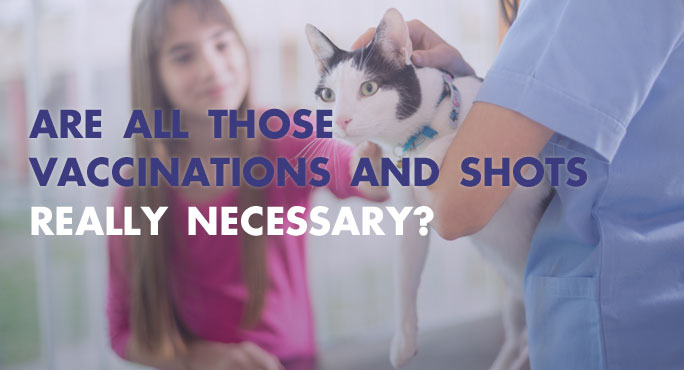Are All Those Vaccinations and Shots Really Necessary?
Published on: June 15, 2017 | Author: Starwood Pet Travel

Heading overseas with your pet? There are a number of things you must or should do to prepare your pooch or kitty for their move. Depending on where you’re going, your pet may also have to undergo a slew of tests, treatments, and vaccinations before he can be welcomed into your new country. It seems like a hassle – and it’s not cheap, either. Are all those tests and shots really necessary?
Well, no. Not if you:
- Aren’t concerned about protecting your pet from diseases and discomfort
- Don’t care about being a good neighbor in your new home, by ensuring your pet does not harbor or transmit disease or parasites
And, in reality, not if you don’t mind leaving your pet behind. Because without all those shots, etc., that’s what you will have to do. Otherwise, he may be sent home by the authorities. And that’s no bluff. Famous actor Johnny Depp learned that lesson the hard way.
We know that’s not you!
Your cat or dog is a precious member of your family. You spoil him with too many toys. You feed him the best possible food. Even his treats are nutritious. You ensure he visits the vet regularly, so he can remain healthy as well as happy. The tests and vaccinations your vet recommends each year are based on where you live and your pet’s lifestyle.
So what’s with all the extra tests and shots if you plan to travel?
Every country has different rules.
That’s because local conditions differ. There are many parasites, pests, and diseases that can affect cats and dogs. Whether any given one is a problem – or even exists – varies from one place to another. Some diseases are prevalent in many locations, whereas others are rarer. This explains why the list of tests, treatments, and immunizations your pup or kitty will need depends on where you’re going.
There is one disease that is a universal concern: rabies. According to recent statistics from the World Health Organization:
- Rabies is present in more than 150 countries and territories around the world – on every continent except Antarctica
- Domestic dogs are responsible for 99% of all rabies transmissions to humans (most occur in Africa and Asia, especially India)
The WHO, along with other United Nations organizations, is working to eliminate human rabies deaths by 2030. The problem isn’t only related to people – pets and wildlife can contract and spread rabies. Unchecked, the disease could devastate populations of indigenous animals. But the spread of rabies can be prevented via vaccination. So, although other required vaccinations may vary from one country to another, you’ll find rabies on the list.
Even with a current rabies vaccination, your pet may have to get a booster, because not every country considers the three-year vaccine adequate.
Most countries around the world are categorized as “rabies –controlled.” That is, rabies is known to exist in that country, but thanks to strong control measures, it is not considered a threat. There are some countries where rabies has not been controlled. And there are a few that are deemed rabies-free. If you’re moving to one a rabies-free country, your pet will probably have to undergo yet another test before being admitted.
It’s called a blood titer. This test confirms that the rabies vaccine your pet received is actually working in their blood system. Your vet will draw a small blood sample, then the sample will be watched over a period of weeks. Find out right away if this is required, so the timing of this test doesn’t disrupt your pet’s travel plans.
Technically, you could consider microchipping another required “shot”
Most pet parents’ worst nightmare is losing their cat or dog. If he were lost, you’d be lost, too. Microchipping vastly improves the chances you and your pet could be reunited if you were to become separated. A microchip is so tiny it is implanted using a special syringe, so your pet barely notices. Yet from that time on, he carries a unique identifier that can be read by an RFID scanner. This is how animal shelters and vets identify lost pets.
Microchipping is used around the world, and a microchip is required by every country for pet importation. However, there are many microchip registries. If you’re relocating to another country, you need to take an additional step to ensure your pet can be identified and found if you are separated, no matter where you are.
The Global Pet Registry transcends international borders and provides 24/7 protection. Once you register your pet, they will get a collar tag with a unique ID number that links them to the GPR website and call center, and you.
Schedule a visit with your vet right away
He or she will make sure your pet gets all necessary shots, etc., and sign off on your pet’s paperwork, including the USDA international health certificate. It may seem like just a lot of paper, but it all has one vital goal any loving pet parent can appreciate – to make sure your beloved four-legged companion is healthy, and remains that way.
Starwood Animal Transport has rebranded to Starwood Pet Travel. We are still the same great company with the best team, just now with a slightly different name.
Subscribe to the Blog
Enjoy our content? Get them sent to your inbox!
Subscribe Now!


